ADHD
- Home
- »
- Conditions Treated
- »
- ADHD
ADHD
Services
Attention Deficit Hyperactivity Disorder (ADHD) is a neurodevelopmental disorder. It presents in childhood (usually below the age of 12) and often lasts into adulthood. People with ADHD have trouble paying attention, controlling impulsive behaviour, or may be overly active. At Eastern Suburbs Psychiatry, our Psychiatrists assess, diagnose and treat ADHD in adults and our Neuropsychologist provides paediatric assessments of school age children, aged 6 and above, as well as adults.
In diagnosing and treating ADHD, Eastern Suburbs Psychiatry follows the guidelines set by the Royal Australia and New Zealand College of Psychiatrists, NICE, and NSW Department of Health. Accordingly, diagnosis of ADHD in adults can only be made with corroborating evidence such as school reports, corroborative history for a parent, guardian or sibling who was raised with you. Self-report alone, may not meet the threshold set out by the guidelines. In children, corroboration occurs via forms completed by and/or interviews conducted with parents and teachers.
Please also note that medication will not be provided in the first 2 appointments as we must perform a thorough assessment before a proper diagnosis can occur. In many cases, inattention may be caused by a different psychiatric condition and may not be ADHD at all.
Types of ADHD
There are three different ways ADHD presents:
- Predominantly Inattentive Presentation: It is difficult for the person to organise or finish tasks, to pay attention to details, or to follow instructions or conversations. The person is easily distracted or forgets details of daily routines.
2. Predominantly Hyperactive Presentation: The person fidgets and talks a lot. It is hard to sit still for long periods of time. Smaller children may run, jump or climb constantly. The individual feels restless and has trouble with impulsivity. Someone who is impulsive may interrupt others a lot, grab things from people, or speak at inappropriate times. It is hard for the person to wait their turn or listen to directions. A person with impulsiveness may have more accidents and injuries than others.
3. Combined Presentation: Symptoms of the above two types are equally present in the person.
Because symptoms can change over time, the presentation may also change over time.
ADHD in Children
While many children often have trouble focusing and behaving from time to time, children with ADHD have symptoms which persist and which can be severe, causing difficulty at school, at home, or with friends. Common symptoms include:
- Daydreaming regularly
- Forgetting or losing things frequently
- Squirming or fidgeting regularly
- Talking excessively
- Making careless mistakes or taking unnecessary risks
- Having difficulty resisting temptation
- Having trouble taking turns or waiting in a queue
- Having difficulty getting along with others
ADHD in Adults
ADHD can last into adulthood. Some adults have ADHD but have never been diagnosed. The symptoms can cause difficulty at work, at home, or with relationships. Symptoms may look different with aging, for example, hyperactivity may appear as extreme restlessness. Symptoms can become more severe when the demands of adulthood increase. However, the symptoms do not present for the first time in adulthood. They present under the age of 12 but may have gone unnoticed.
Causes of ADHD
The causes and risk factors for ADHD are unknown, but current research shows that genetics plays an important role. However, if your child has ADHD this does not necessarily mean you also have this illness, and visa-versa.
Diagnosis of ADHD
There is no single test to diagnose ADHD, and many other illnesses such as anxiety disorders, depression, primary sleep disorders, and certain types of learning disabilities, can have similar symptoms. Diagnosing ADHD therefore entails a thorough assessment, including a comprehensive history, as well as seeking corroboration from school reports and reports from a parent, guardian or sibling raised with you (for adults), and from parents and teachers (for children).
Treatment for ADHD
In most cases, ADHD is best treated with a combination of medication and cognitive remediation. There are various types of medicines licensed for the treatment of ADHD:
Stimulants:
- Methylphenidate – this is the most commonly used medicine for ADHD. It belongs to a group of medicines called stimulants, which work by increasing activity in the brain, particularly in areas that play a part in controlling attention and behaviour. This comes in an immediate release formulation (Ritalin), a long acting medication (Ritalin-LA), and a slow-release version (Concerta).
- Dexamfetamine – is also a stimulant medication that stimulates certain parts of the brain. It improves concentration, helps focus attention and reduces impulsive behaviour. This comes in an immediate release formulation (Dexamfetamine) and a slow-release version ( Lisdexamfetamine).
Non-stimulants:
- Atomoxetine – this works differently from other ADHD medicines. It’s a selective noradrenaline reuptake inhibitor (SNRI), which means it increases the amount of a chemical in the brain called noradrenaline. This chemical passes messages between brain cells, increasing concentration and helping to control impulses.
- Guanfacine – this acts on part of the brain to improve attention, and it also reduces blood pressure.
The choice of medication, where appropriate, will depend on the history provided and any existing medical complications. Please note that these medications are not a permanent cure for ADHD but may help someone with the condition concentrate better, be less impulsive, feel calmer, and learn and practise new skills.
Prior to prescribing medication, our Psychiatrists will explain the benefits and potential side effects of the drugs in order for you to make an informed decision. If you are prescribed one of these medications, you’ll probably be given a low dose initially, which may then be gradually increased depending on efficacy. Some medicines need to be taken every day, but some can be taken just on work days. Treatment breaks are often recommended. This also helps to prevent developing tolerance and dependence on these medications. It’s important to let your Psychiatrist know about any side effects you are experiencing.
You will need to be reassessed to ensure the treatment is working effectively and check for signs of any side effects. You will also need to be reviewed in person before a repeat prescription can be provided by our Psychiatrists. Repeat prescriptions cannot be provided without an in-person appointment and physical examination.
For an appointment please call our practice on (02) 8382 6746 or complete the inquiry form here.
For New and Current Patients
Important: Please click on the button below and read the information prior to making your appointment

